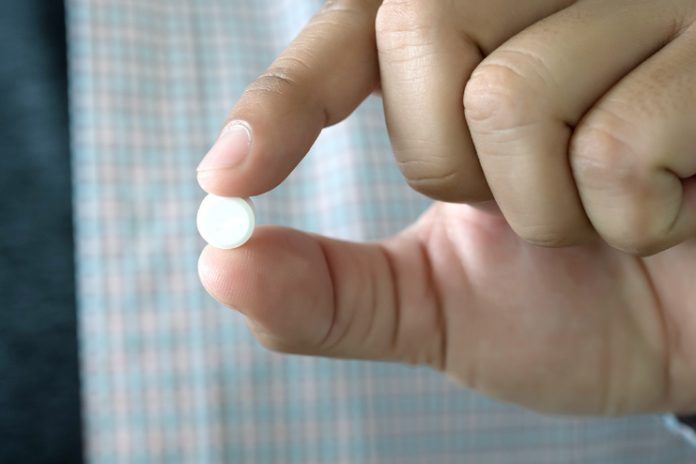Affiliate Disclaimer
Some links in this article are affiliate links. We may earn a small commission if you make a purchase through these links, at no extra cost to you. We only recommend products we find useful to our readersThe debate between the usages of aspirin on a daily basis has been in the talks since ages. Studies and researches have been conducted to see the kind of results these drugs would bring about in the overall health of an individual. A recent study concludes that any form of prior notion about this might not be the ideal mainly because the conclusions they drew seem to state otherwise.
The new study (R) (R) (R) conducted by a team of scientists under the NIH/National Institute on Aging conducted a large clinical trial to scrounge the benefits of low daily dosage of Aspirin in older people who didn’t have any previous medical history of cardiovascular diseases or events and the main finding of this study was the fact that the aspiring was nowhere responsible for prolonging the healthy and independent living in the individuals.
The ASPirin in Reducing Events in the Elderly (ASPREE) trial is a placebo controlled, double bind and randomized trial which included a total of 19,114 people in the program, amidst which 16.703 people were from Australia while the remaining 2,411 from the United States. The study kick started back in 2010 and mainly enrolled participants aged 65 and above. The researchers focused more on the African –American and Hispanic ethnicity because of their heightened history concerning dementia and cardiovascular disease.
During the enrollment process in the beginning, the participants were assured to have no traces or past history of dementia or other forms of physical disability or health conditions that could pose an inhibition to the aspirin use. The study commenced over a time span of 4.7 years in order to determine the outcomes.
The director of the National Institute of Aging, Richard J. Hodes stated that while the previous clinical trials have affirmed the benefits of aspirin for the prevention of heart attacks as well as strokes for people suffering from coronary artery disease. While this was what paved its way to the persistent studies encircling this subject, it was the small speck of uncertainty which required further studies to determine its effects on a healthy individual.
Hodes further emphasised stating that their main point of concern was to deduce whether or not the daily consumption of aspirin was going to be effective in other healthy older individuals with no previous history of cardiac diseases and such. The study was mainly conducted to put everything into perspective and get a fuller picture of the situation and the overall benefits of aspirin on the healthy older individuals.
The entire study was led under the supervision and guidance of John J. McNeil, M.B.B.S., Ph.D., head of the Department of Epidemiology and Preventive Health at Monash University, Australia along with Anne M. Murray, M.D., director of the Berman Center for Outcomes and Clinical Research at Hennepin Healthcare in Minneapolis. The supply for the Aspirin for the study was supplied by Bayer who had no other involvement in the study.
While the study was conducted to find the possible impacts of Aspirin on the health, it was found that it didn’t inflict any kind of positive impacts on the health of the participants. On the contrary, the group taking the aspirin had a higher death risk and rate in comparison to the placebo controlled group. 5.9% of the participants died during the study while it was 5.2% in terms of the placebo controlled group. Even though there has been not much findings concerning whether or not the consumption of Aspirin daily was a contributing factor to the death or not. The researchers said that it requires further studies and findings to solidify the claims.
It was found that majority of the deaths were because of the induction of cancer. A small percentage of new cancer types were also witnessed in the participants. But, because of lack of proper evidence in this regard, it is hard to deduce what could be the influencing factor in this.
With that aside, the next facet was to conclude whether or not the daily low dosage of Aspirin was beneficial in preventing the possibilities of cardiovascular diseases or not. The results in the ASPREE participants concluded to the fact that there were no significant changes or alterations in the prevention of coronary heart disease, nonfatal heart attacks, and fatal and nonfatal ischemic stroke in the individuals. 448 people from the aspirin consuming group experienced cardiovascular diseases while 474 people from the placebo group were affected by the same.
In the final conclusion for the study, it was found that around 50% of the death in the older adult population was because of the induction of cancer in those individuals. Other than that, heart diseases and strokes made up for about 19% of the deaths and around 5% of the death was all because of the excessive and uncontrollable bleeding.
Evan Hadley, M.D., director of NIA’s Division of Geriatrics and Clinical Gerontology finally stated saying that it is very crucial for the older adults to stick to advice of their physicians when it comes to the consumption of Aspirin. The new studies and even the prior ones don’t necessarily conclude the possibilities from every possible aspect and can have unwanted implications which are why it is best to not blindly follow the same.

















